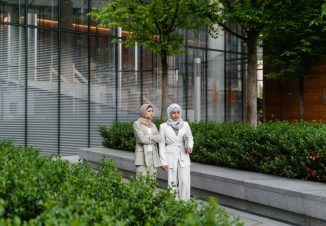
The UAE has a higher education sector that has developed and matured significantly over the past 20 years with more than 70 universities operating locally, many of which are branches of international universities based in the UK, US, Europe or elsewhere globally. Universities in the UAE are striving to attract top academics from around the world to help position the UAE as an internationally competitive hub for higher education for both students and academics. The search for and retention of world-class academic faculty is highly competitive and employment considerations have a material effect. This article will consider some of the issues and considerations from an employment perspective for universities and academics in the UAE.
Tenure and long-term job stability
In universities around the world, a key tenet of employment for academic faculty is security of tenure. The US system, variations of which are widely used internationally at leading universities, involves both a non-tenured and a tenured phase. Once they have completed their PhD, aspiring academics are typically recruited as a tenure-track member of faculty. They then proceed through an initial period (typically five to seven years) during which they develop their research and teaching programmes.
Subject to successful qualification of the non-tenured phase, involving rigorous internal and external review, the faculty member would then be offered tenure with the university, which effectively means a permanent role. This is a very significant milestone for university academics as it provides them with security and stability going forward, and gives them reassurance that their employment relationship with the university will be long-term and essentially guaranteed.
Implementation of a tenured faculty system (i.e. permanent employment) does not fit neatly with the local immigration and employment framework in the UAE. As expatriates require a valid residence visa and work permit in order to lawfully live and work in the UAE, the ongoing employment of a faculty member is largely dependent on the relevant UAE university obtaining and maintaining the individual’s UAE residence visa. Depending on whether the UAE university is on the mainland or in a free zone, employee residence visas expire and need to be renewed every two or three years and are subject to approval by the local authorities. If the academic’s residence visa is not issued or renewed for any reason, and unless alternative visa sponsorship arrangements can be made, this would have existential implications for the academic’s ability to lawfully work for the university in the UAE.
Further, depending on the terms of their employment contract with the university, an academic may have little recourse or protection under UAE law in the event that the university decides to bring the employment relationship to an end. If the employment contract is for a fixed term, which is a common approach in UAE universities, there is no legal obligation for the university to renew the academic’s contract (or residence visa) on the expiry of the fixed term. Renewal of contracts is subject to review of performance and the willingness of the university to renew the contract. Even if the employment contract is for an unlimited duration with no specific expiry date, the university could nevertheless terminate the contract at any time by providing notice to the individual (and ultimately the maximum amount of compensation which could be awarded to the academic is three months’ salary if they had been dismissed by the university without a valid performance-based reason).
The local immigration and employment framework in the UAE is therefore not fully conducive to a tenure-type arrangement, and in particular the long-term job stability and security that are associated with tenure at universities in other countries. It is the same in the GCC generally. This represents a challenge for the region particularly in the sciences and engineering. World-class research in these fields requires the development of advanced laboratories, the attraction of high-quality PhD students (whose study will take at least five years) and the long-term employment of laboratory staff and researchers. The gestation period for breakthrough discoveries is often measured in decades.
These issues could hinder the efforts of UAE universities to attract and retain the top academics from around the world. In the face of competition from universities in other countries (where security of tenure may be better accommodated within the local employment and residency framework), leading academic researchers may give preference to working and seeking tenure at universities elsewhere globally where they may feel more confident in building a research programme, hiring their own PhD students and furthering their long-term research efforts.
It is therefore a very welcome development (for UAE universities and academics alike) that the UAE Government has recently introduced a new category of long-term residence visas. One of the categories of individuals who may be granted a ten-year residence visa is those with ‘specialised talents’ including ‘researchers in the fields of science and knowledge’ including specialists, scientists and inventors. While the issuance of a ten-year visa is subject to various conditions and UAE Government approval, this is a promising development, which will hopefully help attract top academics to live and work in the UAE going forward.
Flying faculty
Another challenge that universities face is compliantly bringing in academics who primarily work overseas but are visiting the UAE for short periods of time to teach at an UAE university.
As mentioned above, an individual is only permitted to work in the UAE (which would include teaching at a local university) if they have a valid UAE residence visa and work permit. While it is possible for some universities in the UAE to obtain a ‘mission visa’ which would lawfully enable a visiting academic to work for them for a short period of time the process and costs are akin to getting a full residency visa. Further, the option of a mission visa is not available for universities that operate in any of the UAE free zones, including Dubai Academic City and Knowledge Village, where many local universities are based.
As a result, visiting lecturers may resort to teaching at UAE universities while visiting the UAE on tourist visas, which is not compliant with local immigration requirements and could potentially expose the university and the individual to monetary fines or other penalties.
Academic freedom
An important consideration for academics around the world is academic freedom and the ability to undertake research and express their viewpoints and ideas without undue interference, censorship or discipline. However, care must be taken to avoid espousing any views that may contravene local legal requirements particularly in relation to defamation and discrimination. As is the case in other countries, academic freedom cannot be viewed in isolation and must instead be considered in the overall context of UAE legislation, customs and norms.
Notice of termination of employment
Where a faculty member wishes to leave a particular university, it is fairly standard (globally) for them to be required to give the university at least six months’ prior notice. This helps avoid the sudden departure of faculty members, which would otherwise leave the university in a difficult position in terms of the continuity of their research activities and teaching/lecturing for students.
While the UAE Labour Law itself does not impose a maximum notice period, a 2016 Ministerial Decree states that employee notice periods may not exceed three months. Accordingly, even if a faculty member’s employment contract with a UAE university includes a six-month notice period, the individual could potentially seek to rely on this Ministerial Decree if he or she is resigning and does not want to serve the full six-month contractual notice period. This would put the university in a difficult position as it may require more than three months to find a suitably qualified replacement, and could lead to significant disruption particularly if the individual’s departure falls part way through an academic year.
Some universities put in a place a ‘carrot rather than stick’ structure in order to dampen the appetite of academics to serve a shorter notice period and there are a number of ways to achieve this.
Summary
Given its geographical location and unparalleled diversity of nationalities and cultures, the UAE is uniquely positioned to take full advantage of the global higher education sector and all the opportunities it brings. There remain some challenges to navigate as outlined above, however the UAE is moving in the right direction and we have no doubt that it is only a matter of time until the remaining gaps will be closed.


